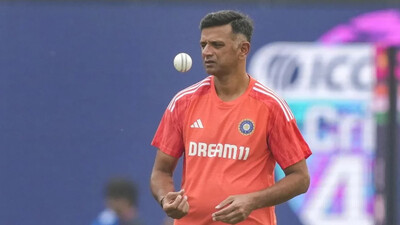Recommended Stories
New Delhi: The Supreme Court on Friday indicated that it will impose an environment compensation charge (ECC) ranging from Rs.700 to Rs.1,300 on commercial vehicles entering Delhi as a transit route for their onward journey.
A bench of Chief Justice H.L. Dattu, Justice Arun Mishra and Justice Adarsh Kumar Goel, while giving this indication, reserved the order to be pronounced on Monday (October 12).
However, it was clarified that commercial vehicles carrying essential commodities, food stuff and passengers and emergency vehicles, including ambulances, would be exempted from the environment cess.
The imposition of ECC would be for four months on an experimental basis and the money collected would go to the Delhi government.
The Delhi government told the court that it would issue a notification in this regard after a formal order was passed by the apex court. However, it urged the court to issue specific directions in exercise of its power so that its actions are not questioned.
It also told the court that it would give wide publicity to the directions of the court.
In the suggestions for directions from the central and Delhi governments and amicus curiae Harish Salve, the court was urged to direct that the charge will be imposed on all light and heavy-duty commercial vehicles at entry point in Delhi.
The ECC will be imposed at the rate of Rs. 700 for category 2 (light duty vehicles) and category 3 (2 axle trucks) and Rs.1,300 for category 4 (3 axle trucks) and category 5 (4 axle trucks and above).
The vehicles exempted from paying ECC, for now, includes ambulances, those carrying essential commodities, including food stuffs, milk, vegetables and oil tankers.
The suggested recommendations said that Delhi government would ensure that levying of ECC was not abused by taking appropriate steps including deploying supervisory staff.
The ECC that would be collected would be handed over to Delhi government that will be used for augmenting public transport and improving roads, particularly for most vulnerable users like cyclists and pedestrians.
The suggestion regarding Uttar Pradesh and Haryana says that two state governments have to be directed to provide large size bill boards at the exit points towards the alternative highways in their respective jurisdiction for diversion of commercial vehicles.
At present the commercial vehicles entering Delhi by MCD count are about 22,628 but a study by the Centre for Science and Environment (CSE), says that over 38,588 commercial heavy vehicles enter the city every day from authorised entry points.
CSE director Sunita Narain who was present in Supreme Court on Friday said that if one were take into account, vehicles entering Delhi from all entry point, then the count would be more than 50,000.












